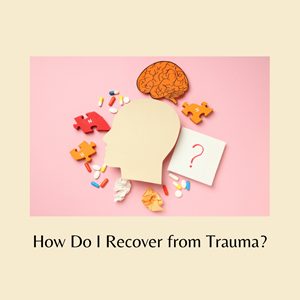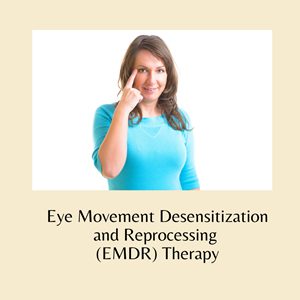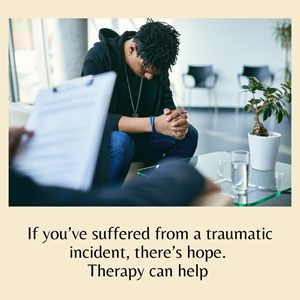 Here’s a harsh reality: sometimes, the aftermath of a traumatic event – the residual lingering trauma – can be just as bad (if not worse!) than the event itself.
Here’s a harsh reality: sometimes, the aftermath of a traumatic event – the residual lingering trauma – can be just as bad (if not worse!) than the event itself.
Trauma affects us all in different ways. It exists as part of a spectrum; and can involve a variety of circumstances and experiences, or a single terrifying event. Here’s how the American Psychological Association classifies trauma and its aftermath:
“Trauma is an emotional response to a terrible event like an accident, rape, or natural disaster. Immediately after the event, shock and denial are typical. Longer term reactions include unpredictable emotions, flashbacks, strained relationships, and even physical symptoms like headaches or nausea.”
Thankfully, there’s recourse for those who have gone through it – you can do something about it. Yes! If you’ve suffered from a traumatic incident, there’s hope. With the right treatment you will get through it.
How Do I Know if I Suffer from Trauma?
One of the trickier aspects of mental health is, it’s not always apparent. Yes, technology is getting better at both capturing images of the brain, and understanding how the different regions are affected – how they grow and shrink as a result of trauma – but much of that technology is still in the development phase and isn’t easily accessible to everyone.
If you have nightmares, flashbacks, avoid situations that remind you of the incident, or if – when something similar happens – you become hyper aware, your body floods with cortisol or you become paralyzed with fear, this is a big indication that you may have Post Traumatic Stress Disorder (PTSD).
As the APA definition states, if the situation you endured has a negative impact on your current life, today, that’s an indication you could benefit from some extra help.
How Do I Recover from Trauma?
As most people are probably aware, therapy is the best way to move through trauma.
You may be wondering, how? How does talking about it help?
Well, there’s more to it than just talking. There are other research-backed modalities that are shown to be effective in treating trauma.
Let’s take a look at a few of them:
Eye Movement Desensitization and Reprocessing (EMDR) Therapy
 Established in 1987 for treating people suffering from PTSD, EMDR is a structured approach where patients are encouraged to focus on and discuss various memories associated with a traumatic event, while engaging in bilateral eye movements. Many engage in more than one session a week, and the approach typically takes 6 to 12 sessions.
Established in 1987 for treating people suffering from PTSD, EMDR is a structured approach where patients are encouraged to focus on and discuss various memories associated with a traumatic event, while engaging in bilateral eye movements. Many engage in more than one session a week, and the approach typically takes 6 to 12 sessions.
The goal is to reduce the vivid memories of the event and help process the experience.
How Does EMDR Work?
As the eyes move (it can be back and forth, like focusing on a ping-pong ball during a game) both sides of the brain – the left and right hemisphere – are targeted, and this helps reframe and properly process the residual memories.
Is EMDR Effective?
Yes! It’s been studied multiple times, and research indicates it has a colossal impact in reducing PTSD symptoms.
Who Benefits from EMDR?
EMDR works really well for single-event trauma victims, since it has them focus on the memories and images associated with the experience.
We use EMDR with our trauma patients. If you think you could benefit from it, let us know! We’re always happy to chat and share more about what we do.
Brainspotting
Brainspotting was established in 2003, and is formed on the theory that trauma can get stored in the body, manifesting in both physical and mental ailments. It combines talk therapy with focusing on the “brain spot,” the place the eye lands when the patient experiences distress associated with the memory.
How Does Brainspotting Work?
Slightly less structured than EMDR, a brianspotting session starts with mindful relaxation, and perhaps some bilateral sound – putting on headphones and listening to music that alternates from one earbud to the other.
Next comes identifying the place of discomfort in the body.
The therapist helps the patient locate where their eyes land when the pain intensifies, and guides them through the process of alleviating it. The therapist assists in identifying any feelings that arise.
Does Brainspotting Actually Work?
Though it hasn’t been around as long as EMDR, the research indicates brainspotting is just as effective, and can be excellent when used as an adjunct to EMDR, or alone.
Who Benefits from Brainspotting?
 People with PTSD, anxiety, depression, chronic pain, and more. It’s excellent for people with far-reaching trauma that isn’t isolated to one event.
People with PTSD, anxiety, depression, chronic pain, and more. It’s excellent for people with far-reaching trauma that isn’t isolated to one event.
This is another one of our go-to modalities for trauma.
If you’re a Northern California resident who has experienced trauma and are looking for ways to treat it, give us a call. We have two convenient locations, one in Roseville, and the other in Fair Oaks Village.
Remember, you can get through this, and you don’t have to do it alone.
Therapy in Roseville, CA, Fair Oaks, CA, or Online in California:
If you are ready to change your life for the better, we can help. To begin therapy at our Sacramento area locations or online, follow these steps:
- Contact the Relationship Therapy Center and schedule a free 20-minute phone consultation to learn more.
- Meet with one of our talented therapists
Services Offered at The Relationship Therapy Center in California:
Our Sacramento area counseling clinics located in Roseville and Fair Oaks, CA are pleased to offer a variety of mental health services. Our couples services include: Couples Counseling, Counseling after infidelity, sex therapy, co-parent counseling, family therapy, divorce counseling, intensive couples retreats, and premarital counseling. Our individual therapy services include, anxiety treatment, therapy for children, teen therapy, depression treatment, and individual relationship counseling. Our therapists offer online counseling in California to treat a variety of mental health concerns. Please reach out to our Sacramento area therapy office to learn more about the many ways we can help you or your loved ones.
